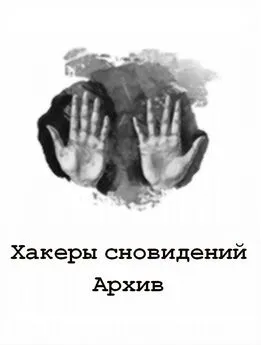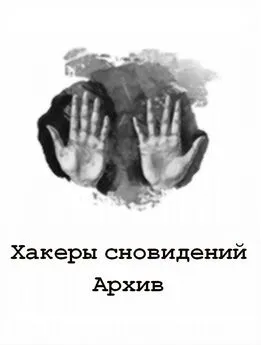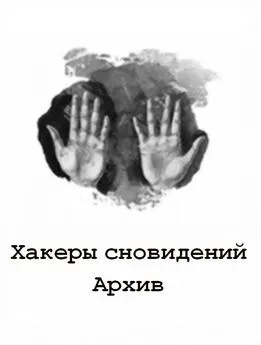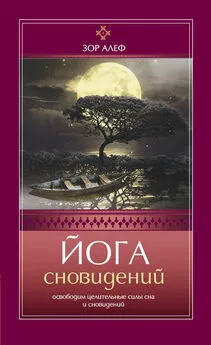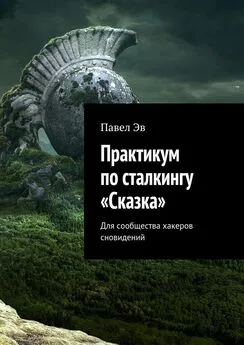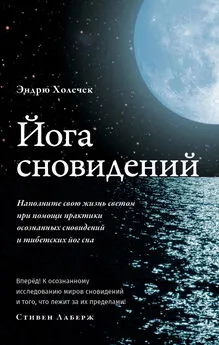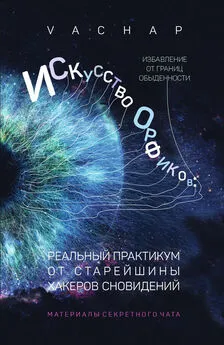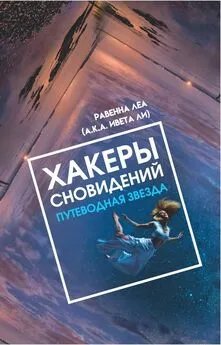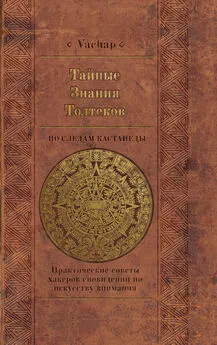Хакеры сновидений: Архив 7-9
- Название:Хакеры сновидений: Архив 7-9
- Автор:
- Жанр:
- Издательство:неизвестно
- Год:неизвестен
- ISBN:нет данных
- Рейтинг:
- Избранное:Добавить в избранное
-
Отзывы:
-
Ваша оценка:
Хакеры сновидений: Архив 7-9 краткое содержание
Хакеры сновидений: Архив 7-9 - читать онлайн бесплатно полную версию (весь текст целиком)
Интервал:
Закладка:
through a hard psychic, moral and intellectual training. Do you agree with this assertion? How is don Juan“s world
integrated into this context?
A: For don Juan Matus, a pragmatic and extremely sober shaman, “spirituality“ was an empty ideality, an assertion without basis
that we believe to be very beautiful because it is encrusted with literary concepts and poetic expressions, but which never goes
beyond that.
Shamans like don Juan are essentially practical. For them there only exists a predatory universe in which intelligence or
awareness is the product of life and death challenges. He considered himself a navigator of infinity and said that in order to
navigate into the unknown like a shaman does, one needs unlimited pragmatism, boundless sobriety and guts of steel.
In view of all this, don Juan believed that “spirituality“ is simply a description of something impossible to achieve within the
patterns of the world of everyday life, and it is not a real way of acting.
Q: You have pointed out that your literary activity, as well as Taisha Abelar“s and Florinda Donner-Grau“s, is the result
of don Juan“s instructions. What is the objective of this?
A: The objective of writing those books was given by don Juan. He asserted that even if one is not a writer one still can write,
but writing is transformed from a literary action into a shamanistic action. What decides the subject and the development of a
book is not the mind of the writer but rather a force that the shamans consider the basis of the universe, and which they call
intent. It is intent which decides a shaman“s production, whether it be literary or of any other kind.
According to don Juan, a practitioner of shamanism has the duty and the obligation of saturating himself with all the
information available. The work of shamans is to inform themselves thoroughly about everything that could possibly be related to
their topic of interest. The shamanistic act consists of abandoning all interest in directing the course the information takes. Don
Juan used to say, “The one who arranges the ideas that spring from such a well of information is not the shaman, it is intent. The
shaman is simply an impeccable conduit.“ For don Juan writing was a shamanistic challenge, not a literary task.
Q: If you allow me to assert the following, your literary work presents concepts that are closely related with Oriental
philosophical teachings, but it contradicts what is commonly known about the Mexican indigenous culture. What are the
similarities and the differences between one and the other?
A: I don“t have the slightest idea. I“m not learned in either one of them. My work is a phenomenological report of the cognitive
world to which don Juan Matus introduced me. From the point of view of phenomenology as a philosophical method, it is
impossible to make assertions that are related to the phenomenon under scrutiny. Don Juan Matus“ world is so vast, so
mysterious and contradictory, that it isn“t suitable for an exercise in linear exposition; the most one can do is describe it, and that
alone is a supreme effort.
Q: Assuming that don Juan“s teachings have become part of occult literature, what“s your opinion about other teachings
in this category, for example Masonic philosophy, Rosicrucianism, Hermeticism and disciplines such as the Cabala, the
Tarot and Astrology when we compare them to nagualism? Have you ever had any contact with or maintain any contact
with any of these or with their devotees?
A: Once again, I don“t have the slightest idea of what the premises are, or the points of view and subjects of such disciplines.
Don Juan presented us with the problem of navigating into the unknown, and this takes all of our available effort.
Q: Do some of the concepts of your work, such as the assemblage point, the energetic filaments that make up the universe, the world of the inorganic beings, intent, stalking and dreaming, have an equivalent in Western knowledge?
For example, there are some people who consider that man seen as a luminous egg is an expression of the aura
A: As far as I know, nothing of what don Juan taught us seems to have a counterpart in Western knowledge.
Once, when don Juan was still here, I spent a whole year in search of gurus, teachers and wise men to give me an inkling of
what they were doing. I wanted to know if there was something in the world of that time similar to what don Juan said and did.
My resources were very limited and they only took me to meet the established masters who had millions of followers and,
unfortunately, I couldn“t find any similarity.
Q: Concentrating specifically on your literary work, your readers find different Carlos Castanedas. We first find a
somewhat incompetent Western scholar, permanently baffled at the power of old Indians like don Juan and don Genaro
(mainly in The Teachings Of Don Juan, A Separate Reality, A Journey To Ixtlan, Tales Of Power, and The Second Ring
Of Power.) Later we find an apprentice versed in shamanism (in The Eagle“s Gift, The Fire from Within, The Power of
Silence and, particularly, The Art Of Dreaming.) If you agree with this assessment, when and how did you cease to be
one to become the other?
A: I don“t consider myself a shaman, or a teacher, or an advanced student of shamanism; nor do I consider myself an
anthropologist or a social scientist of the Western world. My presentations have all been descriptions of a phenomenon which is
impossible to discern under the conditions of the linear knowledge of the Western world. I could never explain what don Juan
was teaching me in terms of cause and effect. There was no way to foretell what he was going to say or what was going to
happen. Under such circumstances, the passage from one state to another is subjective and not something elaborated, or
premeditated, or a product of wisdom.
Q: One can find episodes in your literary work that are truly incredible for the Western mind. How could someone who“s
not an initiate verify that all those “separate realities“ are real, as you claim?
A: It can be verified very easily by lending one“s whole body instead of only one“s intellect. One cannot enter don Juan“s world
intellectually, like a dilettante seeking fast and fleeting knowledge. Nor, in don Juan“s world, can anything be verified absolutely.
The only thing we can do is arrive at a state of increased awareness that allows us to perceive the world around us in a more
inclusive manner. In other words, the goal of don Juan“s shamanism is to break the parameters of historical and daily perception
and to perceive the unknown. That“s why he called himself a navigator of infinity. He asserted that infinity lies beyond the
parameters of daily perception. To break these parameters was the aim of his life. Because he was an extraordinary shaman, he
instilled that same desire in all four of us. He forced us to transcend the intellect and to embody the concept of breaking the
boundaries of historical perception.
Q: You assert that the basic characteristic of human beings is to be “perceivers of energy.“ You refer to the movement of
the assemblage point as something imperative to perceiving energy directly. How can this be useful to a man of the 21st
century? According to the concept previously defined, how can the attainment of this goal help one“s spiritual
improvement?
A: Shamans like don Juan assert that all human beings have the capacity to see energy directly as it flows in the universe. They
believe that the assemblage point, as they call it, is a point that exists in man“s total sphere of energy. In other words, when a
shaman perceives a man as energy that flows in the universe, he sees a luminous ball. In that luminous ball, the shaman can see
a point of greater brilliance located at the height of the shoulder blades, approximately an arm“s length behind them. Shamans
maintain that perception is assembled at this point; that the energy that flows in the universe is transformed here into sensory
data, and that the sensory data is later interpreted, giving as a result the world of everyday life. Shamans assert that we are
taught to interpret, and therefore we are taught to perceive.
The pragmatic value of perceiving energy directly as it flows in the universe for a man of the 21st century or a man of the
1st century is the same. It allows him to enlarge the limits of his perception and to use this enhancement within his realm. Don
Juan said that to see directly the wonder of the order and the chaos of the universe would be extraordinary.
Q: You have recently presented a physical discipline called Tensegrity. Can you explain what is it exactly? What is its
goal? What spiritual benefit can a person who practices it individually get?
A: According to what don Juan Matus taught us, the shamans who lived in ancient Mexico discovered a series of movements
that when executed by the body brought about such physical and mental prowess that they decided to call those movements
magical passes.
Don Juan told us that, through their magical passes, those shamans attained an increased level of consciousness which
allowed them to perform indescribable feats of perception.
Through generations, the magical passes were only taught to practitioners of shamanism. The movements were surrounded
with tremendous secrecy and complex rituals. That is the way don Juan learned them and that is the way he taught them to his
four disciples.
Our effort has been to extend the teachings of such magical passes to anyone who wants to learn them. We have called
them Tensegrity, and we have transformed them from specific movements pertinent only to each of don Juan“s four disciples, to
general movements suitable to anyone.
Practicing Tensegrity, individually or in groups, promotes health, vitality, youth and a general sense of well-being. Don Juan
said that practicing the magical passes helps accumulate the energy necessary to increase awareness and to expand the
parameters of perception.
Q: Besides your three cohorts, the people who attend your seminars have met other people, like the Chacmools, the
Energy Trackers, the Elements, the Blue Scout . . . Who are they? Are they part of a new generation of seers guided by
Читать дальшеИнтервал:
Закладка:
